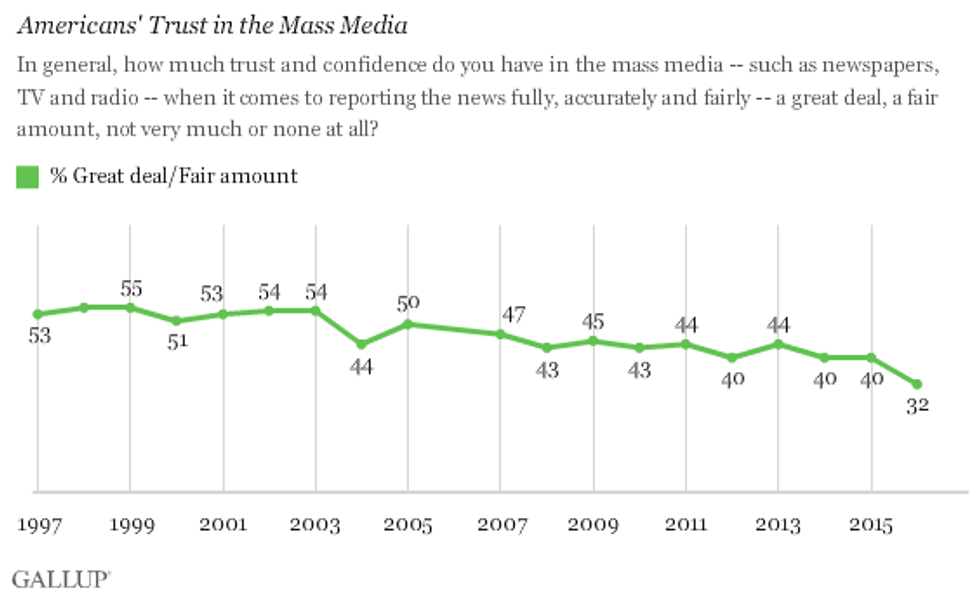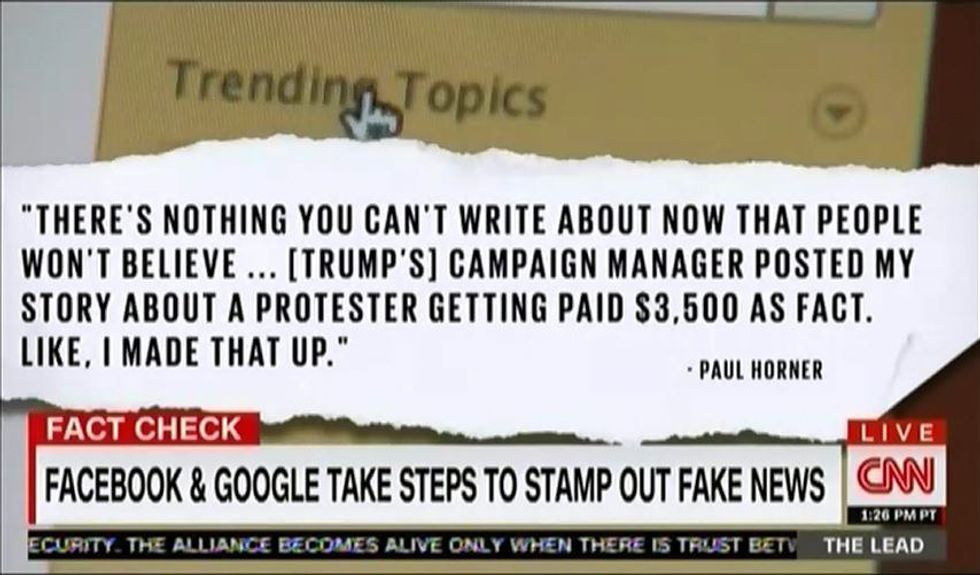Fake news has been at the forefront of many discussions, especially after the conclusion of the 2016 election. Chances are we've all seen at least one fake news article in circulation on our social media feeds. In fact, if I had a dollar for every article that claimed to have found the cure for cancer, I would have a hefty amount of cash.
As a major in communications, it is incredibly infuriating to see people of all political affiliations, both young and old, site these articles as their source in a heated Facebook post. Even so, had I ever sited a Facebook article, my teachers would be sure to chew me out as it is completely unprofessional.
Spreading false information under the guise of a credited publication really speaks to the overarching problem at hand as it doesn't end with false news articles. In fact, calling out fake news as a problem is only covering the tip of the iceberg. Fake news is actually a symptom of poor media literacy in this country.
Countless times, I hear people go on and on about the 'crooked media' and 'mainstream media', further demonizing what is actually a set of tools used by people to communicate. According to a Gallup Poll recorded in September of this year only 32% of people say they have a fair amount of trust in the media. The exact number of people polled and the method of investigation can be found here.
That leaves about 70% of people in the U.S in a state of distrust with the media. Given that chilling fact, it is not hard to see why someone would turn to an article published by an unknown source. After all, the presentation for most of these articles looks pretty damn professional on an initial glance. It is simply too easy to fall for these Trojan horses of false information when we are stuck inside our own little bubble, a phenomena known as the 'daily-me'.
That is not to say that this negligence should be excused, especially when a simple investigation done on the part of the media consumer could reveal much more than what the article is trying to portray. Who posted the article? Does the author have a profile? Is there a trend within the titles of other articles? Have they sited their sources? Is this an editorial or a hard news article? There are many factors one could look at to determine whether or not a source is credible, and the best part is that its all accessible if one was to take the time to look.
It is going to take a lot for mainstream news media outlets to regain the trust of the people. Personally, I think they have made the right move in verifying many of these articles, proving them to be true or false. Even so, I understand that many people don't know what to believe anymore. If there is going to be trust again, it will most certainly take a group effort. This includes accurate reporting on the part of these news outlets and an idea of media literacy on the part of the media consumer. Everyone is responsible.
If its anything that I've learned over two years of studying the field of journalism its that these outlets are essential to a free society. The first words that all of my teachers assign these entities are 'watch dogs', and the name is fitting. People work their asses off to get that journalism degree, studying relevant topics such as ethics and interviewing etiquette, so that they may become a credible outlet of information. On all scales, both large and small, news media is filled with people that want to convey the truth, to help our democracy thrive through informed and active citizens.
Whether or not this gap will be bridged remains to be seen. Whether or not you believe in the trustworthiness of news media, it will be an interesting next few years to say the very least.





















